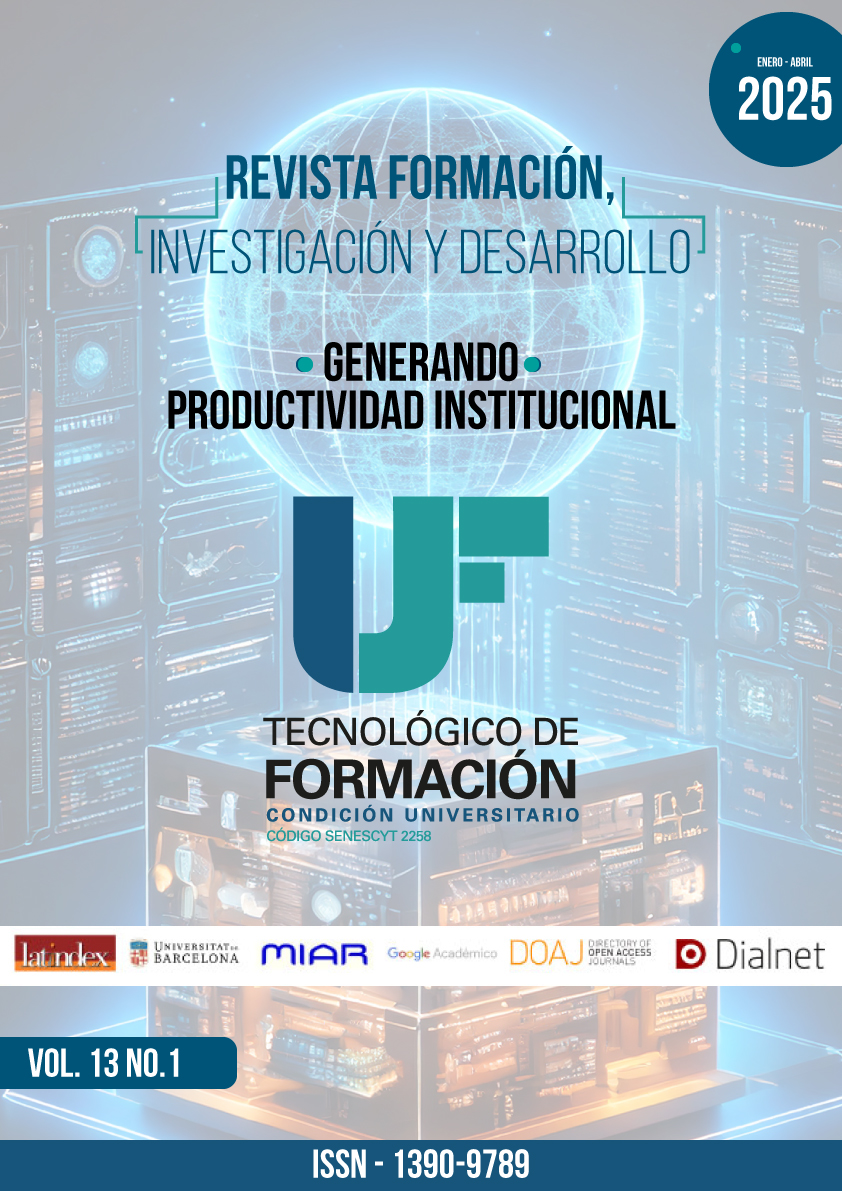Between Efficiency and Ethics: AI Use in the Construction of Teaching Programs.
Main Article Content
Abstract
This article analyzes the perceptions, uses, and ethical-pedagogical dilemmas faced by higher education teachers in Ecuador regarding the use of artificial intelligence (AI) tools in the development of teaching programs. Using a qualitative approach based on semi-structured interviews with eight academic content creators, the study explores motivations, benefits, risks, and strategies associated with generative AI in academic planning. Results reveal three usage profiles: strategic, mechanical, and rejection. Most participants use AI as a support tool to improve the organization and writing of content, though cases of uncritical dependency were also identified. Main perceived benefits include time-saving and improved content structuring. Limitations involve lack of originality, loss of pedagogical authorship, and ethical concerns related to transparency and academic integrity. Teachers agree that AI use must be mediated by pedagogical judgment, avoiding uncritical automation of teaching processes. The study concludes that, while AI presents opportunities for innovation in higher education, its integration requires careful reflection on the role of educators, professional ethics, and the need for training in the responsible use of these technologies.
Article Details

This work is licensed under a Creative Commons Attribution-NonCommercial-ShareAlike 4.0 International License.
Este trabajo tiene licencia DE Atribución/Reconocimiento-NoComercial-CompartirIgual 4.0 Internacional. CC BY-NC-SA 4.0.
How to Cite
References
Aguilar, G., Esquivel-Gámez, I., Edel-Navarro, R., & Veytia-Buchelli, M. G. (2024). La IA en el desarrollo de competencias investigativas en el posgrado. Alteridad. Revista de Educación, 19(2), 162–172.
https://doi.org/10.17163/alt.v19n2.2024.01
Biesta, G. (2007). El riesgo de educar: El riesgo como virtud educativa en un mundo sometido a la seguridad. Aprender a Pensar. https://aprenderapensar.net/wp-content/uploads/2017/06/181129_riesgo_educar.pdf
Eaton, S. E. (2023). Generative artificial intelligence and academic integrity: An urgent call to action. International Journal for Educational Integrity, 19, Article 4. https://doi.org/10.1007/s40979-023-00144-1
Floridi, L., & Cowls, J. (2021). A unified framework of five principles for AI in society. Harvard Data Science Review, 1(1). https://doi.org/10.1162/99608f92.8cd550d1
Freire, P. (1998). Pedagogía del oprimido (30.ª ed.). Siglo XXI Editores. https://www.servicioskoinonia.org/biblioteca/general/FreirePedagogiadelOprimido.pdf
González, M. A. (2004). La educación en el contexto de la sociedad digital: una aproximación crítica. Revista Mexicana de Investigación Educativa, 9(22), 37–62. https://www.redalyc.org/pdf/869/86901005.pdf
Holmes, W., & Tuomi, I. (2022). State of the art and practice in AI in education. Publications Office of the European Union. https://op.europa.eu/en/publication-detail/-/publication/68dcfa0c-7b2c-11ec-9136-01aa75ed71a1
Morales Morgado, E. M. (2023). La inteligencia artificial generativa en la educación: luces y sombras. RIED. Revista Iberoamericana de Educación a Distancia, 26(1), 239–255. https://doi.org/10.5944/ried.26.1.35523
Ramírez Montoya, M. S., & Valenzuela González, J. R. (2017). Apropiación tecnológica en docentes de educación superior: una perspectiva desde la innovación educativa. Revista Electrónica de Investigación Educativa, 19(3), 104–115. https://www.redalyc.org/journal/274/27447325008/html/
UNESCO. (2021). Recomendación sobre la ética de la inteligencia artificial. https://unesdoc.unesco.org/ark:/48223/pf0000381137
UNESCO IESALC. (2023). La inteligencia artificial en la educación superior: una mirada crítica desde América Latina y el Caribe. https://repositorio.cepal.org/server/api/core/bitstreams/7be78858-1bdf-4c59-b7d2-78532198900b/content
Uribe, C., & Pedró, F. (2023). La inteligencia artificial en la educación superior: una mirada crítica desde América Latina y el Caribe. CEPAL. https://repositorio.cepal.org/server/api/core/bitstreams/7be78858-1bdf-4c59-b7d2-78532198900b/content
Viñals Blanco, A., & Cuenca, M. (2016). La competencia digital docente: La gran olvidada en la formación inicial del profesorado. Revista Interuniversitaria de Formación del Profesorado, 86(30.3), 103–114. https://www.redalyc.org/journal/274/27447325008/html/

